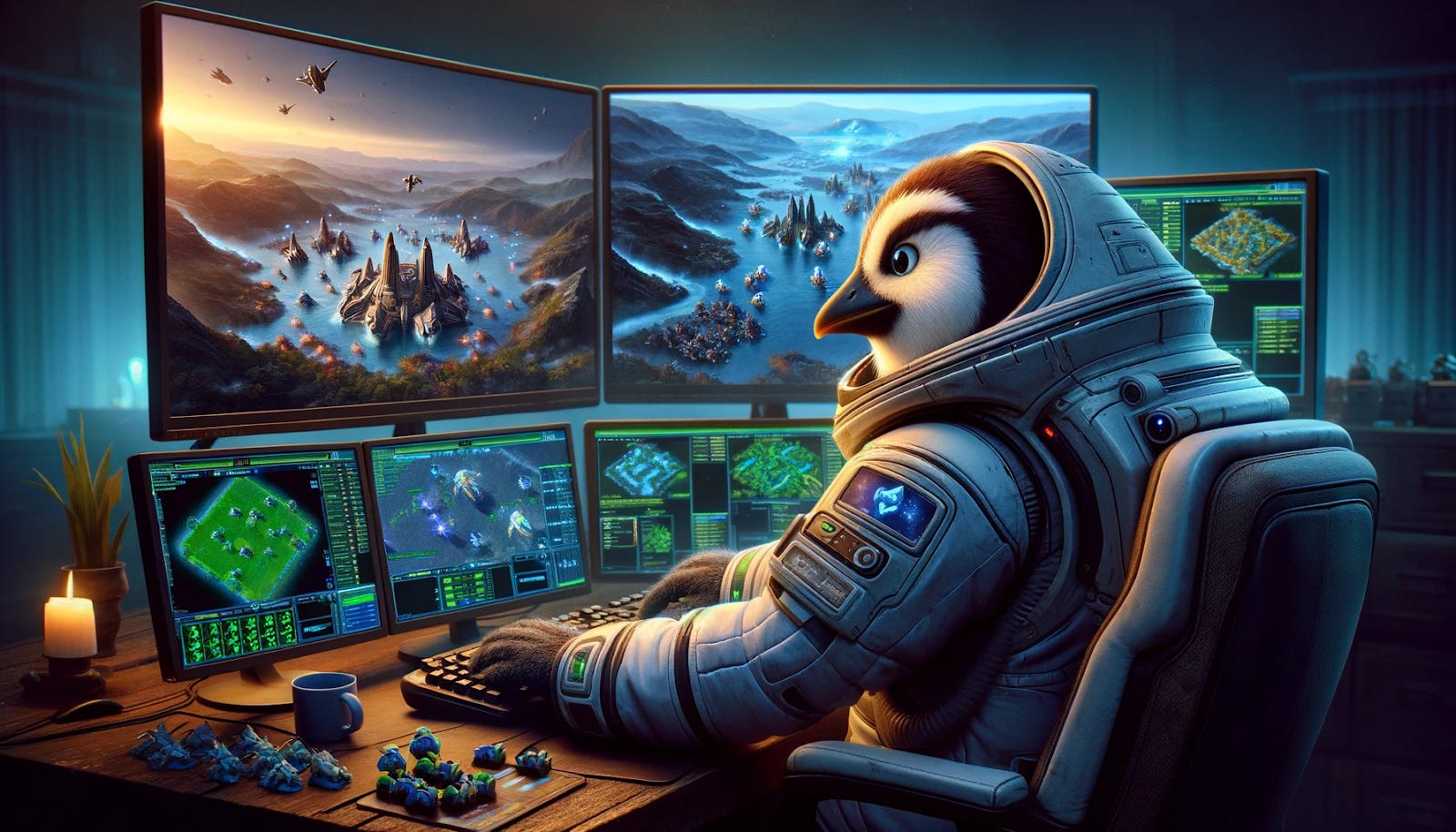I used to watch StarCraft videos incessantly. Day 9 was my favorite YouTube channel. It stood for a 9-pool, his StarCraft: Brood War strategy of having 9 drones (mining workers) before building production or military units. This was a huge investment in macro-management. One does two types of management while playing StarCraft: micro and macro.
Micro
Micro-management is the detailed control of individual units or small groups of units. Micro skills include precise unit movement, targeted abilities, unit positioning, and tactical battle maneuvers. Good micromanagement can maximize the effectiveness of units, especially in combat situations, turning the tide of a fight. When starting, it’s fun to watch and control your army.
Macro
Macro-management involves the broader strategic elements of the game, such as resource management, base expansion, unit production, and overall economy. Effective macro ensures a steady flow of resources and continuous production of units to build an army. It’s about efficiently managing your base and resources on a larger scale.
Prioritization
While battles are happening, average and good players intently watch the battle, microing every part of the battle they can. Their units are their most valuable asset, so they want to ensure none go to waste. Great players keep their screen on the battle, micro when they can, and use hotkeys to continue producing units while watching the battle. Top players switch back and forth between micro and macro, often having their screens elsewhere amid battle.
During battle, top players continue producing units and use the battle as an opportunity to expand their economy by establishing new bases while their opponent is distracted. Top players only watch part of the battle and initiate more battles on other fronts, while the plurality of their focus remains on macro. This seems insane to a mid-player, but it’s the norm for top players.
Day 9
The conventional wisdom of how to get good at StarCraft was to memorize openings and build orders. Those strategies only got players so far. They’d hit a wall.
Day 9 emphasized macro over micro. If you get macro correct, you win nine out of ten times. Meaning if your economy and production are strong, then you’ll eventually win. You’ll have a better economy, which enables you to build more production to produce more units faster.
Even if you control your army mediocrely, your larger army will overwhelm your opponent. With rare exceptions, more units beat fewer units.
Day 9 gained a massive following in the StarCraft community because his method worked. Players followed it and leveled up. He’d teach numerous other useful frameworks, but this, along with enjoying the process, was the base of all of them.
Macro and micro are both important. However, exceptional macro and good enough micro make one a top player. This is true of life and company building.
Day 1
I sometimes imagine we started Ender today. We have the same knowledge of the space and bought the company to come into this exact team, product, and clients. It’s our first day operating. It’s day 1. What would we do?
If it’s not exactly what we already do, something is wrong.
Using Jeff Bezos’ parlance, a “Day 1” company is at the beginning of its potential. Day 1 is about maintaining a long-term focus, obsessing over customers and their needs, and boldly innovating to meet those needs.
A functional company operates with speed, precision, and discipline. They’re open to new ideas, run experiments to make decisions, and constantly check metrics. Individuals have ownership over their tasks and are empowered to bring projects to fruition. Team members exceeding their current role expectations is par for the course.
Focus
The most successful people in the world generally get a small number of things very right. The New Year is a good time to stop and think about how we spend our time and what our goals really should be versus going along with the flow we’ve set for ourselves or fallen into.There will always be a million micro things that go wrong. As in StarCraft, it’s easy to nitpick. “You could have saved this unit if you moved them. What were you thinking? You weren’t even watching!” But what matters most is getting the macro correct.
Dysfunction in corporations and dysfunction in the world is the norm. What’s rare is to have extreme competence. If you stay consistently competent and properly prioritize, you’ll win. Don’t get distracted over the micro before you improve your macro.
